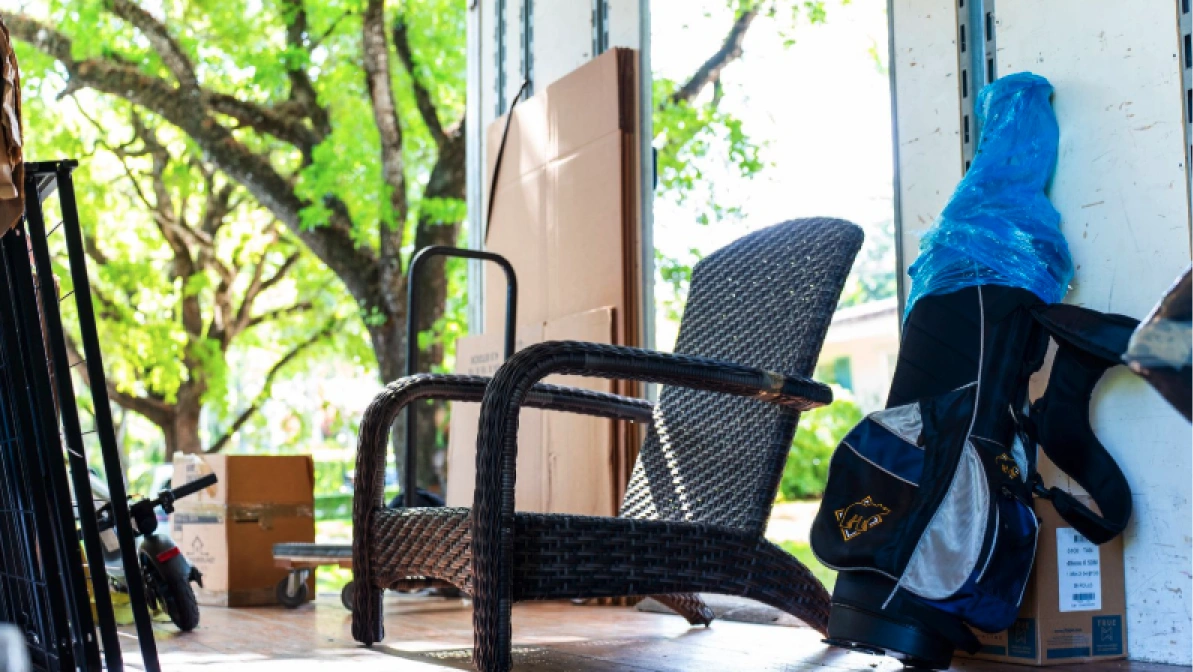Relocating is a major life transition that requires careful planning, timing, and strategy. You might be relocating nearby or to a different state, and the question of when is the best time to move often comes up. The answer depends on many factors including the season, your budget, and personal circumstances.
Understanding the best time to move can lead to a smoother, more cost-effective relocation experience. Whether you’re moving locally or cross-country, a stress-free relocation guide to long distance moves in Florida can help you plan smarter and avoid common pitfalls. Knowing when the moving season helps you avoid peak rates, reduce stress, and secure your preferred moving company.
Seasonal Trends in the Moving Industry

The time of year significantly impacts pricing, availability, and convenience.
Here’s a breakdown of how each season affects the best time of year to move.
Moving in Spring
Spring is a transitional season with mild weather and moderate demand, making it a great opportunity to relocate before the summer rush. Movers are more available, and rates tend to be reasonable, which can make it the best time to move for those seeking flexibility and comfort.
Moving in Summer
Summer is the busiest and most expensive period in the moving season, especially from May through August when families aim to move during school breaks. Although the weather is favorable and daylight is abundant, the high demand means higher prices and limited mover availability, so planning ahead is crucial.
Moving in Fall
Fall strikes a balance between favorable weather and reduced moving costs, as the demand for movers drops after the summer peak. It’s often considered the cheapest time of year to move, with greater scheduling flexibility and less competition for services.
Moving in Winter
Winter is the slowest season for the moving industry, which means lower rates and more availability for customers who can handle colder conditions. While snow and shorter days can pose challenges, it can still be the best time to move for those prioritizing affordability and flexible scheduling.
Best Time of the Month to Move

The beginning and end of each month are typically the busiest due to lease turnovers and closing dates. Moving mid-month offers several advantages—it’s less hectic, often less expensive, and you’re more likely to book your preferred movers and times.
If you’re wondering “When is the best time to move within a month?”, target the second or third week for the best value and availability.
Best Days of the Week to Move
Weekends are popular for obvious reasons, but they also come with higher rates and limited availability. To save money and secure more flexible scheduling, aim for a weekday move. Tuesdays through Thursdays are considered optimal for lower demand and a smoother process. Choosing a weekday can also help you avoid traffic congestion and delays that often come with weekend relocations.
Other Factors That Influence the Best Time to Move
Several personal and logistical factors play a key role in determining when is the best time to relocate, beyond just the dates on the calendar.
Work and School Schedules
Families with school-aged children often plan moves around academic calendars to minimize disruption. Similarly, coordinating a move during a slow period at work can help reduce stress and ensure you’re available to manage logistics. If possible, take time off or schedule your move during school holidays or work breaks.
Lease and Property Timelines
Rental agreements and home purchase closings are key timing factors. Ensure your move-out and move-in dates align to avoid double rent or temporary housing needs. Planning ahead ensures you don’t find yourself in a rush or without a place to stay.
Budget Considerations
Budget constraints often dictate when to move. Moving during off-peak seasons, weekdays, or mid-month dates can significantly reduce costs. If you’re trying to find the best month to move on a budget, consider October through March.
Personal Readiness
Timing your move to match your emotional and physical readiness is equally important. Ensure you have the time, resources, and mental space to manage a move. Avoid scheduling moves during high-stress periods such as after a job change, illness, or major life event unless absolutely necessary.
Family and Health Needs
Families with small children, elderly parents, or individuals with health concerns should consider how timing affects comfort and well-being. A less hectic season or mild weather can help accommodate special care or mobility needs.
Weather Conditions
Extreme heat, snowstorms, or hurricane season can impact the ease and safety of your move. Being aware of your region’s typical weather patterns can help you choose the best time to relocate safely.
How Being Flexible with Your Move Date Saves Time and Money

Flexibility is your greatest asset when planning a move. If you can shift your move by a few days or weeks, you’ll often find better pricing, more availability, and a less stressful experience.
Many moving companies offer discounts during slower periods, and being open to weekday or off-peak scheduling can lead to substantial savings. Flexibility also allows for more control over timing, weather conditions, and access to top-rated movers.
Your Ideal Move Starts with the Right Timing
Choosing when is the best time to move involves evaluating seasonal trends, monthly patterns, and personal circumstances. From spring’s moderate prices to winter’s budget-friendly options, each season offers unique benefits. Consider weekdays and mid-month dates to avoid peak rates and ensure smoother logistics. Balancing cost, convenience, and personal needs will help you determine the best time of year to move for your situation.
If you’re ready to make your move easier, Safebound Moving & Storage is here to help. Based in West Palm Beach, FL, Safebound Moving & Storage is one of the most trusted professional movers in Florida, offering flexible scheduling, reliable service, and competitive pricing. Get a free quote for your next move.





